Vet Recommended Kitten Food: Top Nutrition Picks
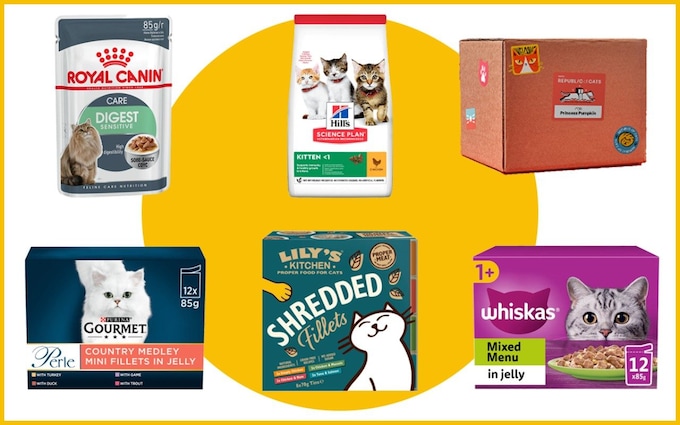
Vet Recommended Kitten Food: Finding the right food for your kitten is crucial. Young cats need special nutrition to grow strong and healthy.
Vet recommended kitten food can help you make the best choice. Kittens are not just small cats. They have unique needs that differ from adult cats. Their bodies are growing rapidly, and they require specific nutrients. Proper kitten food supports their development, energy levels, and overall well-being.
With so many options available, it can be overwhelming to choose. That’s where vet recommendations come into play. Vets know what ingredients and formulas are best for kittens. They consider factors like age, breed, and health. This guide will help you understand why vet recommended kitten food is essential for your furry friend. Let’s explore the best options to ensure your kitten thrives.
The Importance Of Proper Kitten Nutrition
Proper kitten nutrition is very important. It helps them grow strong and healthy. Kittens need specific nutrients for their growth and development. They need proteins, fats, vitamins, and minerals.
Good food supports their bones, muscles, and organs. It also boosts their immune system. This makes them less likely to get sick.
Choosing the right food can have long-term health benefits. Proper nutrition helps prevent obesity and other health issues later in life. Feeding kittens the right food now can lead to a healthier adult cat.
Always consult a vet for the best food choices. Their guidance ensures your kitten gets the right balance of nutrients.
Decoding Kitten Food Labels
Choosing the right kitten food is essential. Look for high-quality protein sources like chicken, turkey, or fish. These help your kitten grow strong.
Healthy fats are also important. They provide energy and support brain development. Look for oils like fish oil or chicken fat.
Check for essential vitamins and minerals. These help keep your kitten healthy and active. Nutrients like taurine are crucial for heart health.
Avoid foods with too many fillers. Ingredients like corn and soy do not offer much nutrition. Read the label carefully for the best options.
Top Vet-recommended Dry Kitten Foods
Choosing the right kitten food is very important. The right food helps your kitten grow strong and healthy. Here are some nutrient profiles that vets recommend:
- High in protein for muscle development
- Rich in fat for energy
- Contains vitamins and minerals for overall health
Different brands have unique features. Here’s a simple brand comparison:
| Brand | Protein (%) | Fat (%) |
|---|---|---|
| Brand A | 35% | 20% |
| Brand B | 32% | 18% |
| Brand C | 30% | 22% |
Always check the labels. Make sure the food meets your kitten’s needs.
Top Vet-recommended Wet Kitten Foods
Wet kitten foods offer great hydration benefits. Kittens need water for good health. Canned food has more moisture than dry food. This helps keep your kitten hydrated.
The texture of wet food is soft. This makes it easy for kittens to eat. Kittens often prefer wet food over dry food. It has a stronger smell and taste. This can encourage picky eaters to enjoy their meals.
Palatability is important for young cats. Wet food can be more appealing. It can help your kitten eat well. Healthy eating supports growth and development.
The Role Of Protein In Kitten Diets
Protein is very important for kittens. It helps them grow strong. Kittens need animal-based proteins for best health. These proteins come from meat. They have all the right nutrients. Plant-based proteins are not as good. They may lack some needed amino acids.
For a healthy kitten diet, look for food with high protein content. The ideal level is around 30-40%. This amount supports muscle growth. It also helps with energy levels. Always check the food labels for protein sources.
| Protein Source | Benefits |
|---|---|
| Chicken | High in essential amino acids |
| Fish | Rich in omega-3 fatty acids |
| Beef | Supports strong muscle development |
Balancing Vitamins And Minerals
Kitten health needs important vitamins. These help growth and development. Key vitamins include:
- Vitamin A: supports vision and immune function.
- Vitamins D: help with calcium absorption.
- Vitamin E: acts as an antioxidant.
- B vitamins: aid in energy and brain function.
Essential minerals are also crucial. They support many body functions. Important minerals for kittens are:
| Mineral | Function |
|---|---|
| Calcium | Builds strong bones and teeth. |
| Phosphorus | Works with calcium for bone health. |
| Iron | Helps make red blood cells. |
| Zinc | Supports immune health and skin. |
Special Diets For Unique Kitten Needs
Some kittens need special food. Hypoallergenic options are great for sensitive stomachs. They help with allergies. These foods have fewer ingredients. This makes them easier to digest.
Weight management is also important. Kittens can gain weight quickly. A balanced diet helps keep them healthy. Look for food with a good mix of protein and fibre. This keeps kittens full without extra calories.
Choose food that fits their needs. Always check the labels. Talk to your vet for the best advice.

Vet Recommended Kitten Food:
Credit: www.telegraph.co.uk
Feeding Schedules And Portions
Finding the right amount of food is important for kittens. They grow fast and need good nutrition. Kittens should eat three to four times a day. This helps keep their energy up.
The portion size depends on the kitten’s age and weight. A general rule is to feed them about 1/4 to 1/3 cup of dry food daily. Wet food can also be offered, usually two to three cans a day. Always check the feeding guidelines on the food package.
Regular meals help kittens stay healthy. Make sure to provide fresh water every day. This is essential for their growth and well-being.
Transitioning To Adult Cat Food
Most kittens can switch to adult cat food at about one year old. This is when they reach maturity. Look for signs that your kitten is ready. Weight gain and growth slowing down are good signs.
To introduce new food, do it slowly. Mix a small amount of the new food with the old food. Gradually increase the new food over a week. This helps avoid stomach upset. Always watch your cat for any signs of allergies.
Keep their water fresh and clean. This helps with digestion. A smooth transition keeps your cat happy and healthy
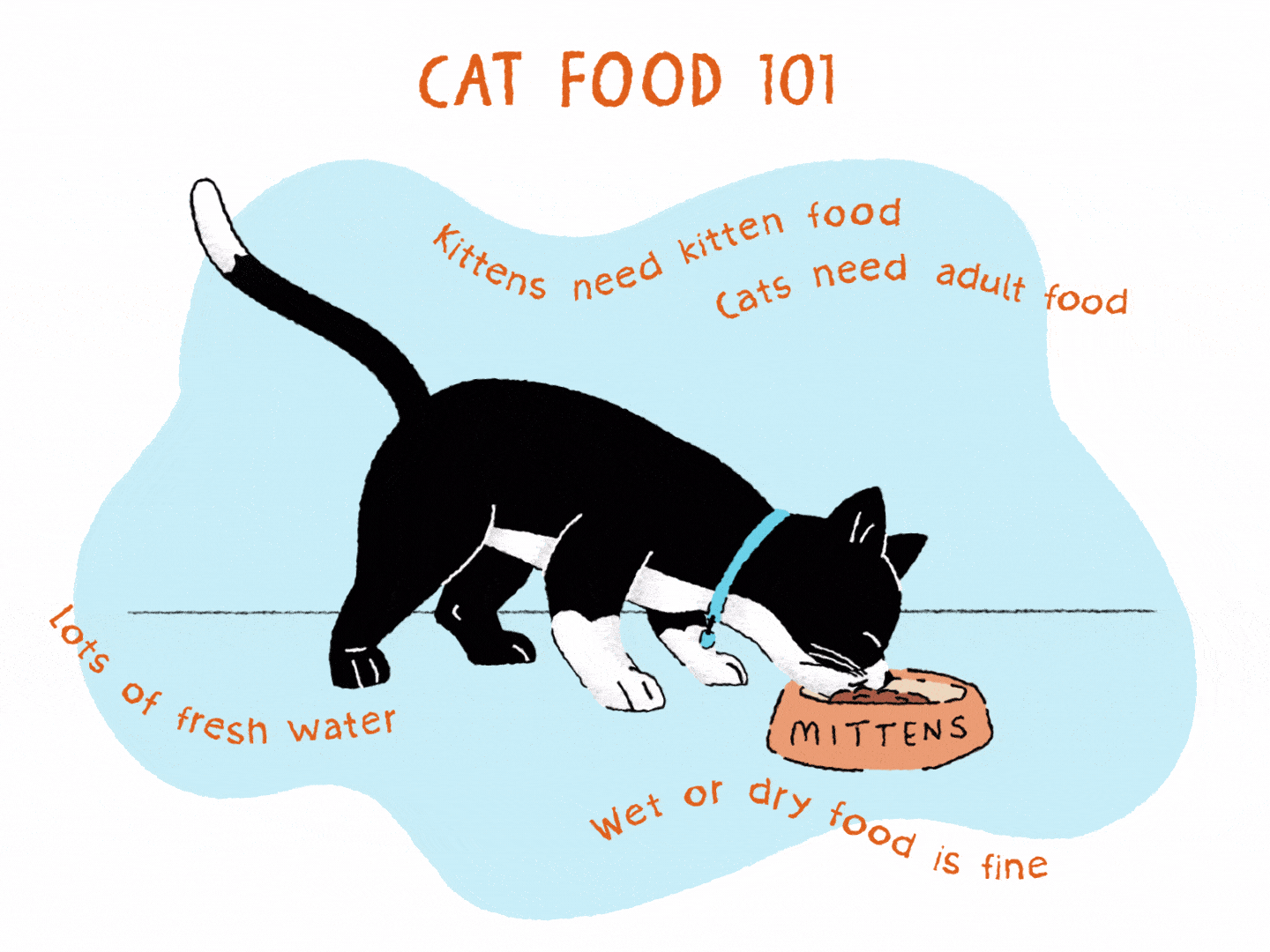
Vet Recommended Kitten Food
.
Credit: www.rockingtalent.com
Common Myths About Kitten Food
Many people think a grain-free diet is best for kittens. This is not true. Kittens need a balanced diet. Grains can be a good source of energy. They help with digestion. Always check with a vet about your kitten’s needs.
Raw food diets are also popular. Some believe raw food is the best. Yet, it can have risks. Raw meat might carry harmful bacteria. Kittens may not get all the nutrients they need. Cooked food is often safer and healthier.
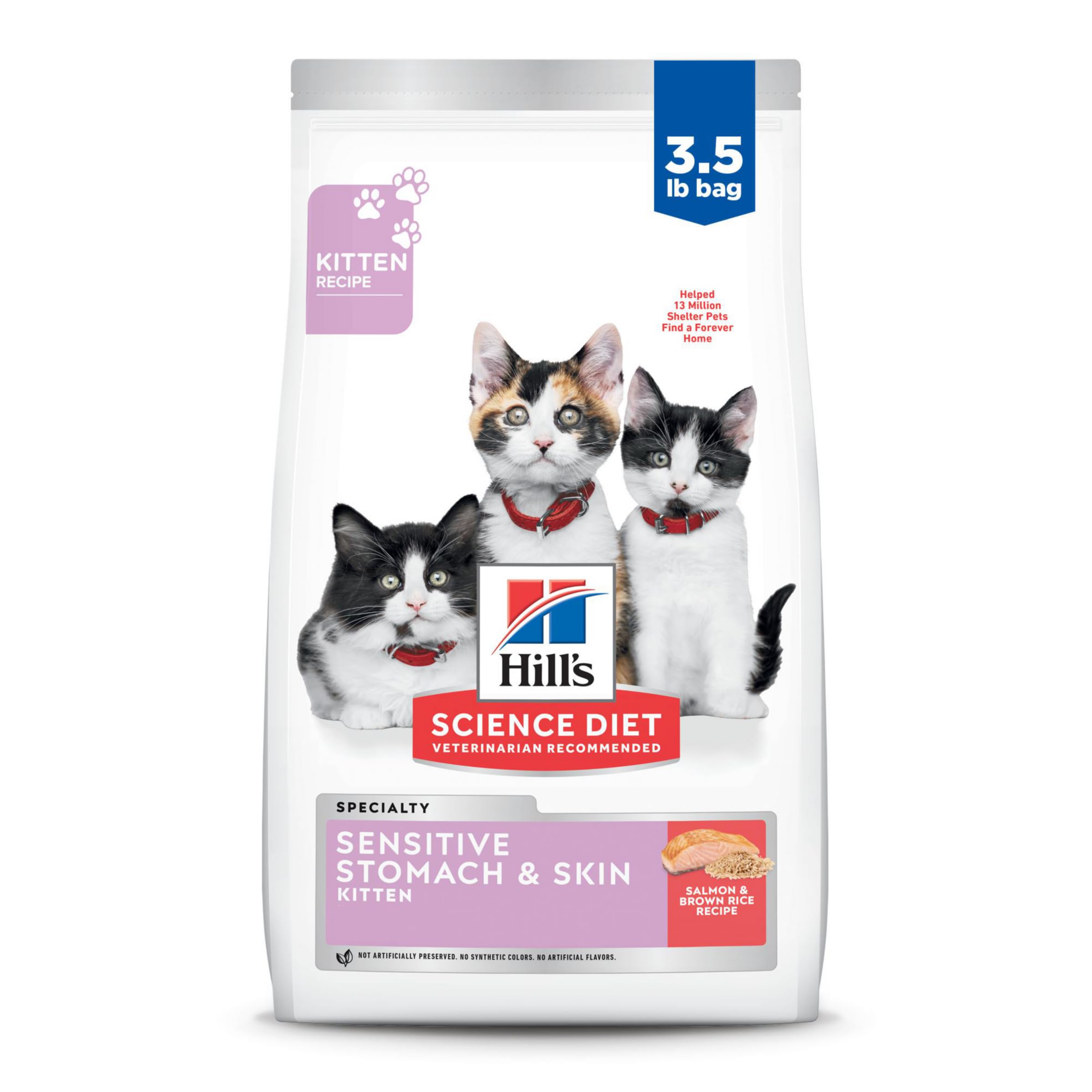
Vet Recommended Kitten Food
Credit: www.nbcnews.com
Frequently Asked Questions
What Is The Best Kitten Food Recommended By Vets?
Vet often recommend high-quality kitten food that includes protein-rich ingredients. Look for brands that feature real meat as the first ingredient. Additionally, ensure the food is formulated with essential nutrients, such as taurine, DHA, and vitamins, to support your kitten’s growth and development.
How Much Food Should I Feed My Kitten?
Typically, kittens should be fed around 3-4 meals per day. The exact amount depends on their age, weight, and activity level. Always check the feeding guidelines on the kitten food packaging for specific recommendations. Regularly monitor your kitten’s weight to adjust food portions as necessary.
When Can I Switch My Kitten To Adult Food?
You can usually transition your kitten to adult food around 12 months of age. This timeframe allows them to fully develop and meet their nutritional needs. Gradually introduce the adult food over a week to avoid digestive upset. Consult your veterinarian for personalised advice on this transition.
How Do I Choose the Right Kitten Food?
Selecting the right kitten food involves checking for high-quality ingredients and essential nutrients. Look for options with real meat, whole grains, and no artificial additives. Additionally, consider your kitten’s breed and any specific dietary needs. Consulting your veterinarian can also provide tailored recommendations.
Conclusion
Choosing the right food for your kitten is crucial. Healthy nutrition supports their growth and development. Vet-recommended kitten food options offer quality ingredients and essential nutrients. Always check labels for protein and fat content. Your vet can guide you in making the best choice.
Pay attention to your kitten’s preferences and needs. A balanced diet leads to a happy, active pet. Investing in good food now means a healthier future for your furry friend. Prioritise their well-being with the right nutrition. Your kitten deserves the best care possible.


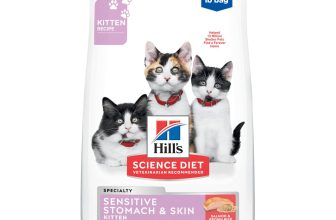
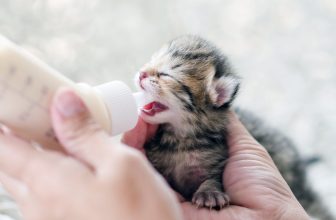

[…] Kittens often face tummy troubles as they adjust to new foods. Their digestive systems are delicate. Choosing the right food can help prevent issues like vomiting or diarrhoea. It can also support their overall health. This blog post will guide you through the best options for sensitive stomach kitten food. […]